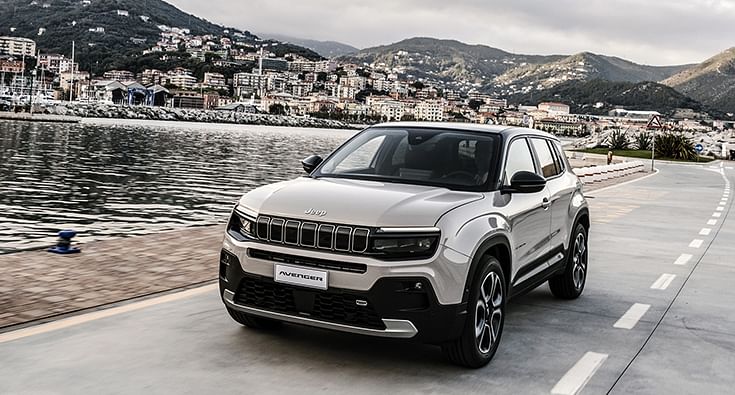Stellantis extends hybrid powertrain to more brands as European demand grows
The 14-brand automaker, which has posted a 41% sales increase in 2024 YTD against 2023 YTD in EU30 hybrid models, is to have 30 hybrid models available in Europe this year and six new launches planned through 2026.
Leveraging its multi-energy approach, Stellantis is swiftly reacting to the quick ramp-up of customer orders in Europe for hybrid models, especially those with the newest eDCT advanced hybrid technology.
The 14-brand automaker will offer 30 hybrid models this year and plans to introduce six more through 2026. Hybrid variants deliver exceptional driving experience while ensuring reduced CO2 emissions at a more affordable price point than fully electric and plug-in hybrid vehicles.
Stellantis achieved a 41% sales increase in EU30 hybrid models year-to-date 2024 versus year-to-date 2023 and expects an increase in customer take rate with the upcoming new launches. Stellantis is the sales leader for low emission vehicles, which includes battery electric, fuel cell, plug-in hybrid and hybrid, in the EU30 for A and B segments and light commercial vehicles.
“In an era where sustainability meets innovation, Stellantis remains at the forefront with our ultimate commitment to advancing hybrid technology for our European customers,” said Uwe Hochgeschurtz, Stellantis Chief Operating Officer, Enlarged Europe. “This technology not only enhances the efficiency and performance of traditional combustion engines, it also propels us toward a future of lower emissions, extended vehicle range and overall affordability for our customers.”
The Stellantis-brand HEVs available now or coming later this year in Europe are:
Alfa Romeo Junior and Tonale
Citroën New C3, New C3 AirCross, C4, C4X, C5 AirCross, C5X
DS 3 and DS 4
Fiat Panda and 600
Jeep Avenger, Renegade and Compass
New Lancia Ypsilon
Maserati Grecale
Opel/Vauxhall Corsa, Astra, Astra SportsTourer, Mokka, Frontera, New Grandland
Peugeot 208, 308, 308 SW, 408, 2008, New 3008, New 5008

The Jeep Avenger is among the models available with a hybrid powertrain.
Stellantis hybrid portfolio benefits from eDCT tech
Stellantis offers a range of technologies – hybrid, plug-in hybrid and fully electric – by leveraging its multi-energy manufacturing footprint to ensure a suitable option for various customer preferences, driving needs and vehicle sizes. Hybrid-powered vehicles harvest kinetic energy that would otherwise be lost during braking and deceleration. This energy is stored in a compact, lightweight battery and reused during acceleration, contributing to a more efficient driving experience.
Most Stellantis-brand hybrid vehicles in Europe are now equipped with the state-of-the-art eDCT tech and its integrated 21-kW electric motor, providing an exceptionally seamless and easy driving experience, including pure electric driving, for example in city driving conditions. The electric motor enables the vehicle to travel with the internal combustion engine turned off during driving. The system’s 48-volt, 0.9-kWh battery delivers up to 1km of range in steady driving and can also provide some electric propulsion during light-load cruising or coasting. During coasting and braking, the electric motor switches to a generator function, capturing kinetic energy and feeding electricity into the battery. A Belt Starter Generator enables a swift and seamless transition between electric mode and hybrid one.
The eDCT-based hybrid powertrain system is engineered for optimal fuel efficiency, achieving up to 20% reduction in CO2 emissions compared to a combustion engine with an automatic transmission. Thanks to its modularity, the innovative eDCT concept can also support plug-in electric vehicles due to a 93% commonality of components, changing only the electric drive module and inverter.
Stellantis is currently producing hybrid vehicles in more than 70% of its plants in Europe. Through the eTransmissions joint venture, Stellantis and its partner currently produce eDCTs in Metz, France, and Turin, Italy, suppling 11 vehicle manufacturing plants. Combined production capacity is over 1.2 million eDCTs per year.
RELATED ARTICLES
Autoliv Plans JV for Advanced Safety Electronics With China’s HSAE
The new joint venture, which is to be located strategically near Shanghai and close to several existing Autoliv sites in...
JLR to Restart Production Over a Month After September Hacking
Manufacturing operations at the Tata Group-owned British luxury car and SUV manufacturer were shut down following a cybe...
BYD UK Sales Jump 880% in September to 11,271 units
Sales record sets the UK apart as the largest international market for BYD outside of China for the first time. The Seal...






 By Autocar Professional Bureau
By Autocar Professional Bureau
 10 Jul 2024
10 Jul 2024
 4153 Views
4153 Views





 Ajit Dalvi
Ajit Dalvi




